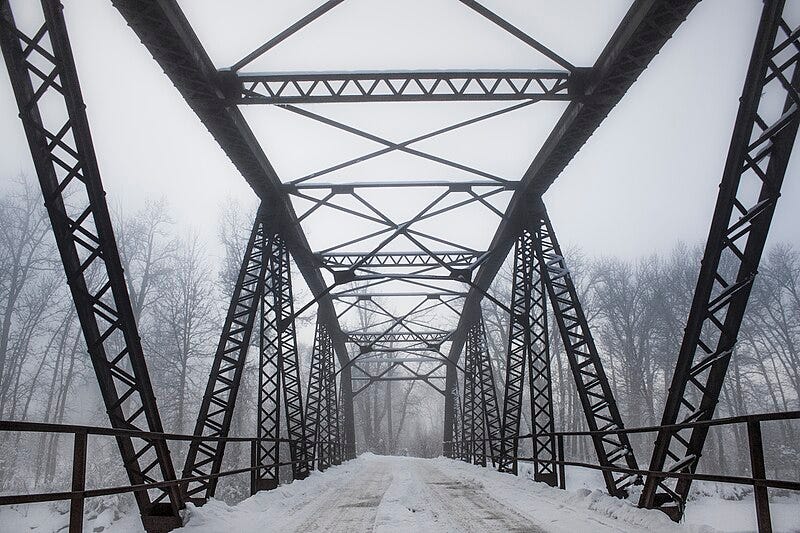Tucking in for the winter
Is it time for a long winter nap? Really?
Last week Joel and I spent 75 minutes talking with John Durso about building community; the whys and hows of it. You can listen to this talk here on Difficult Conversations. The OTGC Podcast, No. 2.
A few days after recording, I stumbled on this quote from Alasdair MacIntyre:
“A crucial turning point in … earlier history occurred when men and women of good will turned aside from the task of shoring up the Roman imperium and ceased to identify the continuation of civility and moral community with the maintenance of that imperium. What they set themselves to achieve instead — often not recognizing fully what they were doing —was the construction of new forms of community within which the moral life could be sustained so that both morality and civility might survive the coming ages of barbarism and darkness.”1
Reading this felt like a gut punch. I read MacIntyre as saying that once we find ourselves trying to create some virtuous community distinct from the one in which we already live, we have already slipped down the slope.
(Photo Credit: Ryan Gallup)
Leaving me to wonder: to what degree have we each already given up hope in America and begun actively contributing to its decline?
Why do we expect so little of ourselves?
Alasdair MacIntyre, After Virtue: A Study in Moral Theory (Notre Dame, IN: University of Note Dame Press, 2007), p. 263. First published in 1981. As excerpted by Jon Simons in The Analog Sea Review No. 4, 2003.




Running with your interpretation, this is an important caution. To heed this warning, I would say we need to think of community as (among other things) a vehicle through which we accomplish our civic engagement, rather than a shelter in which to isolate ourselves.
After our conversation I watched Join or Die, a Netflix retelling of Bowling Alone which also mentioned Robert D. Putnam's new book, The Upswing, which was published in 2020. Where Bowling Alone starts with an America with great civic and social engagement and charts its decline, The Upswing looks at how America got to that golden era in the first place. He argues that it was due to the early 20th century rise of community groups as America corrected for the excesses of the Gilded Age. I haven't read the book yet myself (it is yet another book on the To-Read list), but that idea is what I believe we need today. If we previously created a functional, engaged, democratic culture through community before, I think we can do it again.